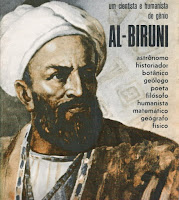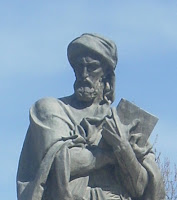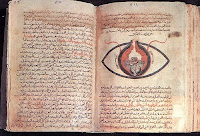 Civilization is the process of becoming civilized. Civilized society is often depicted with the advanced agricultural, commercial long distance, job specialization and urbanization. In addition to The main concept, civilization is often characterized by a combination of secondary elements, including system development of transportation, writing, standards of measurement, the system of legal contracts, high-art style, the monument of architecture, mathematics, astronomy, metallurgy and sophistication.
Civilization is the process of becoming civilized. Civilized society is often depicted with the advanced agricultural, commercial long distance, job specialization and urbanization. In addition to The main concept, civilization is often characterized by a combination of secondary elements, including system development of transportation, writing, standards of measurement, the system of legal contracts, high-art style, the monument of architecture, mathematics, astronomy, metallurgy and sophistication.
Civilizations are often used as a synonym of the culture. Defines as, "art, costumes, customs, beliefs, values, behavior and material habits that support way of life person." Civilization can be distinguished from other cultures with a high degree of organization and social complexity, and with cultural activities as well as economic.
Culture can be destroyed by environmental degradation, such as deforestation and soil erosion, climate changed , trading in long-term dependence on the resources required, the increase in external and internal disorder, such as a machete or invasion, and social responses to internal and environmental problems.
 Islamic civilization in history of civilization of the world. During the development of Islam in the days of empire, with the expansion of areas for enforcement reasons Dien Islam (Islam Religion), conquered Persia, the Roman half Byzntium, strengthened its position in the Arab region or the Middle East, Southeast Asia, and North Africa, followed by the conquest of the sea along the western India, south-eastern Italy , and the Iberian peninsula. As a result, the Islamic rulers inherited the knowledge and skills of Arabic, Greek, Persian, and Indian.
Islamic civilization in history of civilization of the world. During the development of Islam in the days of empire, with the expansion of areas for enforcement reasons Dien Islam (Islam Religion), conquered Persia, the Roman half Byzntium, strengthened its position in the Arab region or the Middle East, Southeast Asia, and North Africa, followed by the conquest of the sea along the western India, south-eastern Italy , and the Iberian peninsula. As a result, the Islamic rulers inherited the knowledge and skills of Arabic, Greek, Persian, and Indian.
A number of important institutions that have not been there in previous civilizations comes from the medieval Islamic world, as an example: public hospitals and mental hospitals, public libraries and library which lends books to the public, academic strata obtained from the university as undergraduate, post graduate and doctoral, astronomical observatory as a research institution, and endowments(in arabic : wakaf).
The Guinness Book of World Records states that the world's oldest university is the University of Al Karaouine in Fez, Morocco, founded in 859. university of Al Azhar, in Egypt in the 10th century, offers various academic degrees including post graduate and is considered the first university to complete.
The public library not only offers a complete collection of manuscripts but also to the public and lent, as the center of instruction and dissemination of knowledge and ideas, as a place of meetings and discussions, and sometimes as a place of learning and postgraduate students. The concept of a library catalog is also introduced in medieval Islamic libraries, when books are grouped by specific categories and types.
 Another illustration of the golden age of Islamic civilization is the number of Muslim scientists who mastered "kasanah" of science in various fields of knowledge, scientists at the time such as al Biruni, al Jahiz, al Jindi, al-Razi, Ibnu Sina, al Idrisi, Ibnu Bajja, Ibnu Tufayl, Ibnu Rushd, al-Suyuti, Geber, al Lhawarizmi, Firnas ibnu Abbas, Ibnu Nafis, Ibnu Khaldun, and others.
Another illustration of the golden age of Islamic civilization is the number of Muslim scientists who mastered "kasanah" of science in various fields of knowledge, scientists at the time such as al Biruni, al Jahiz, al Jindi, al-Razi, Ibnu Sina, al Idrisi, Ibnu Bajja, Ibnu Tufayl, Ibnu Rushd, al-Suyuti, Geber, al Lhawarizmi, Firnas ibnu Abbas, Ibnu Nafis, Ibnu Khaldun, and others.
Contribution to the development of European science is many European scientists who studied in Islamic universities, especially in Andalusia or Spain. These scientists then translate scientific thesis of the Arabic into Latin.
One of the most productive translators in Spain was Gerard of Cremona, who translated 87 books from Arabic into Latin. Thesis including mathematics, medicine, astronomy, natural science, and more.
Muslim scientists placed the emphasis on research. compared earlier civilizations that only rational emphasizes than empirical, which originated from them of which the evidence and observations in the Qur'an and Sunnah. Muslim scientists thus combined precise observation, controlled studies and careful recording of a new approach that leads to the scientific method. Ibn Haytham (Alhacen) is considered as the first inventor of the scientific method when he introduced the optic.
Beginning of the research method developed by Geber in the field of chemistry, al-Bukhari in the field of history and science of hadith, al-Kindi in earth science, Ibn Sina in medicine, al-Biruni in the field of astronomy and mechanics, Ibn Zuhr in the field of surgery, and Ibn Khaldun in science social.
Ibn Haytham conduct scientific method with the following procedure:
1. observation
2. manufacturing problems
3. preparation hipetesa
4. test the hypothesis with research
5. analyze the results of research
6. interpret and develop conclusions virgin
7. publish the findings
with for this reason that Ibn al-Haytham is considered as the first scientist.
The people of Islam are not only the original source of algebra, chemistry, but also the improvement of civilization such as street lamps, window glass, firecrackers and fireworks. Stringed musical instrument of the material, the cultivation of fruit, perfume, spices and others.
Some inventions are believed to derive from the medieval Islamic world such as: programs that automatically, coffee, soap, shampoo, refining, smelting, manufacture of crystals, purification, oxidization, evaporation, filtration, distilled alcohol, uric acid, nitric acid, crankshaft, valves, jahir with thin thread, scalpel, bone saws, forceps, surgical catgut, similar threads, angina windmill, inoculation or vaccination, pen ink, secret writing, frequency analysis, time to eat three times, slide projector and quartz glass, Persian carpets, globe spacecraft, rockets , and explosives.
In agriculture, Islamic scientists make progress in the field of botany and laid the foundations of agricultural science. Islam shows progress botanist agronomical, agrotehnikcal and economic knowledge in areas such as meteorology, climatology, hidrology, soil science and geology science. They also demonstrated in the field of agricultural ecology, irrigation, land preparation, planting, cutting trees, grafting, pruning, maintenance and repairs crops, harvesting crops and irregularities. Al Dinawari (826-896) is considered as the founder of Arabic botany, in his Book of Plants that describe and explain the 637 plants from seed to harvest. Explain the phases of plant growth and produce flowers and fruit.
In the 13th century, biologist of Andalusian, Abu al-Abbas al nabati develop early scientific method for botany, introducing research techniques, explain and identify a number of materials.
His student Ibn al Baitar publish the book "al-Jami fi al Adwiya al Mufrada", regarded as the largest in the history of botany books. 1400 containing plants, food, and different drugs, 300 of which were new discoveries. Results of his work affect Europe after translated into Latin in the year 1758.
Muslim physicians made great advances in medicine, especially anatomy, ophthalmology, pathology, pharmacology, psychology, and surgery. The work of hospital doctors in the form of Islam spread to Europe during the crusades.
Al-Kindi wrote "De Gradibus" who first explained the use of computation and mathematics in medicine, especially in pharmacology. Including the development of mathematical scale to the power system that make medicines and doctors can determine the critical days of the patient.
Razi, medical pioneer children, recorded their personal experiences and various types of diseases. Comprehensive Book of Medicine that explains measles and chicken pox, the European influence. He also introduces the lab tests for urine and feces.
Abu al-Qasim (Abulcasis) considered the father of modern surgery, writes Tasrif (year 1000) a 30 volume encyclopaedia that is taught in medical schools of Islam and Europe until the 17th century, he found a variety of surgical instruments including first surgical instruments for women, sewing thread for surgery , forceps, the number of surgical, scalpel, curette, retractor, surgical spoon, surgical hook, and specula, surgical saws and plaster.
 Ibn Sina considered the father of modern medicine, is a pioneer in medical research. Writings Canon of Medicine (1025) and The Book of Healing (1027) is still a good standard of Islam at universities and in Europe until the 17th century. Ibn Sina introduce counting system science research and physiology, the discovery transmission disease of infection, the introduction of quarantine for contagious diseases, evidence-based medicine, clinical trials, random control experiment, clinical pharmacology, the importance of diet and environmental influences on health, transmission tuberculosos, transmission of disease through water and the ground, transmission through sexual relations, separation of pharmacy and medicine. Ibn Hafis discovered the pulmonary circulation and heart circulation.
Ibn Sina considered the father of modern medicine, is a pioneer in medical research. Writings Canon of Medicine (1025) and The Book of Healing (1027) is still a good standard of Islam at universities and in Europe until the 17th century. Ibn Sina introduce counting system science research and physiology, the discovery transmission disease of infection, the introduction of quarantine for contagious diseases, evidence-based medicine, clinical trials, random control experiment, clinical pharmacology, the importance of diet and environmental influences on health, transmission tuberculosos, transmission of disease through water and the ground, transmission through sexual relations, separation of pharmacy and medicine. Ibn Hafis discovered the pulmonary circulation and heart circulation.
Al-Khwarizmi (780-785), which from its name the term algorithm is derived, contributing to algebra, in his book al-Jabr. He also introduced Arabic numerals including decimal notation. Evidence of the first known introduction of mathematics in the book written Al Karaji (1000), who used to prove the binomial theory, Pascal's triangle, algebra calculus. in 11 century, Omar Khayyam first to explain geometric solution to cubic equations. Other Islamic scientists discovered trigonometry, functions, sin and cosin.

The collapse of the civilization of Islam because of sect disagreement, Sunni and Shiite conflict, the Mongol invasions, the Crusades, and because of political and economic factors. After the fall of Islam in Andalusia, in 1492, began the rise of Europe or Europe's Renaissance and scientific revolution.
One thing to remember that, Islam has given great contribution to the development of human civilization throughout the world. sciences developed by scientists of Islam has been the foundation of the development of modern science. it is proved in many books, the historical record of the crusade, etc.





0 komentar:
Posting Komentar